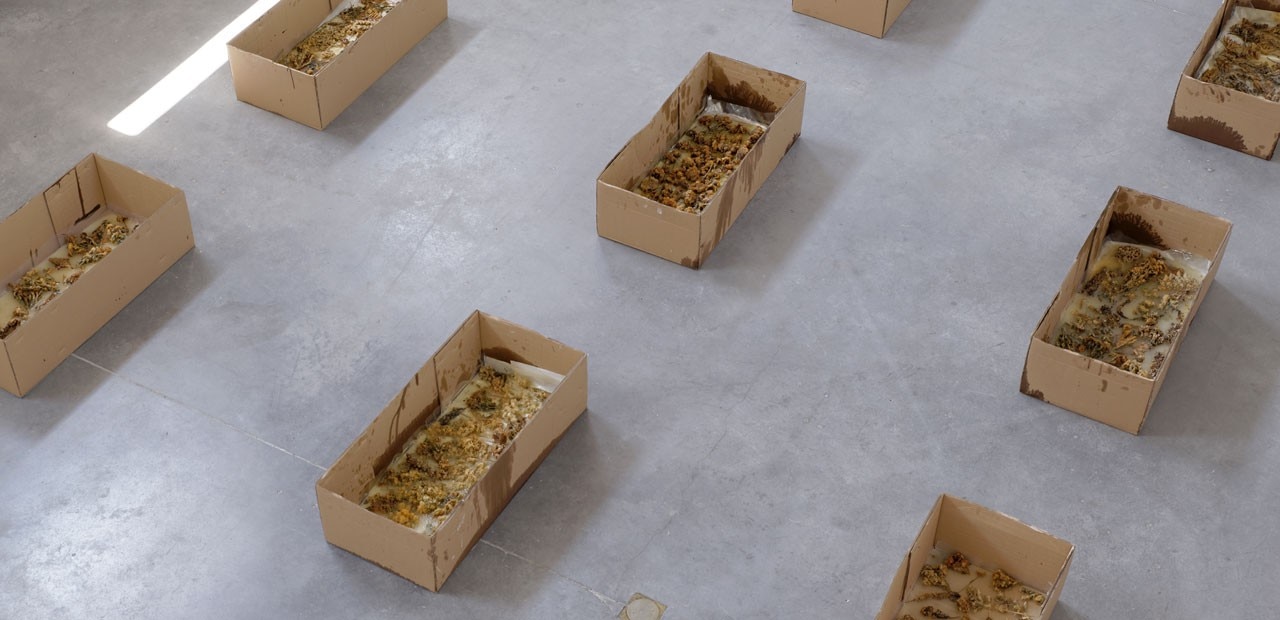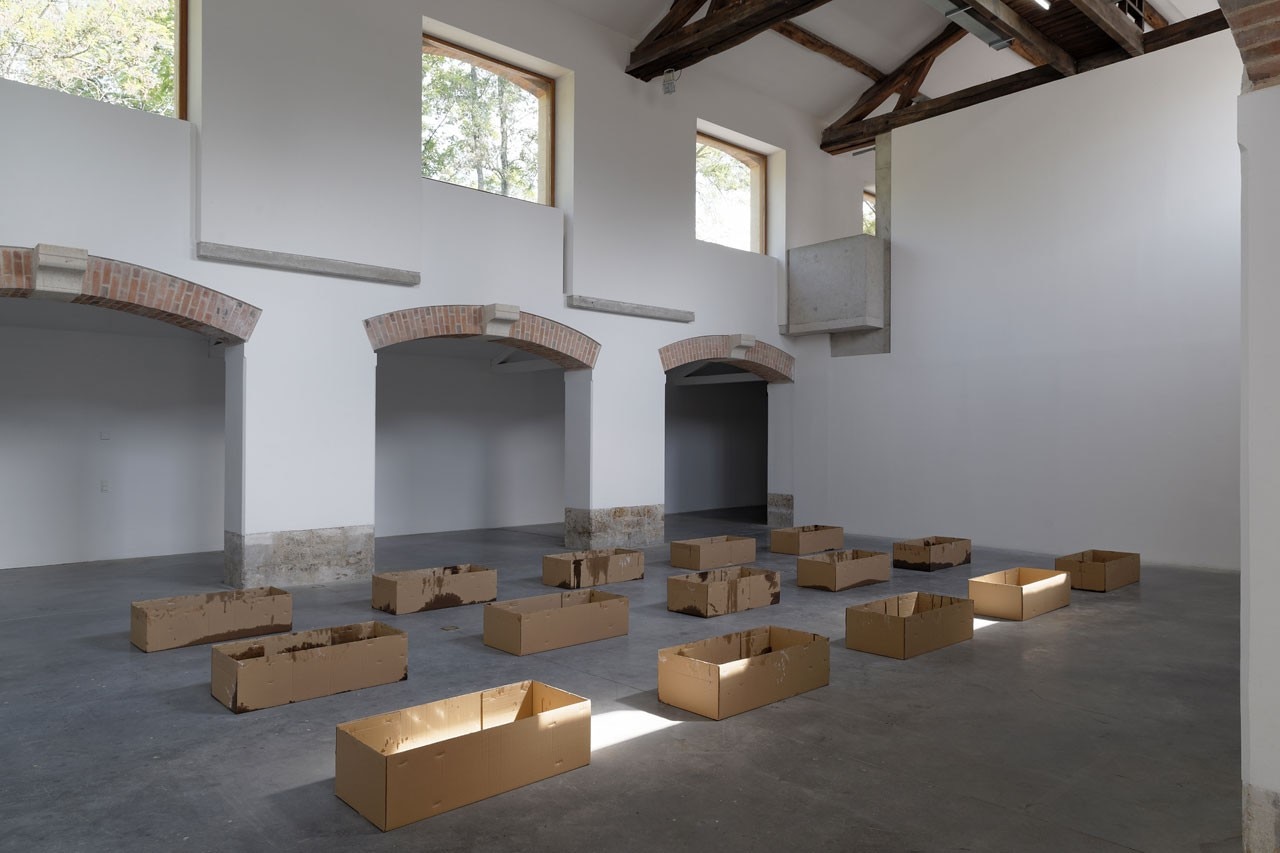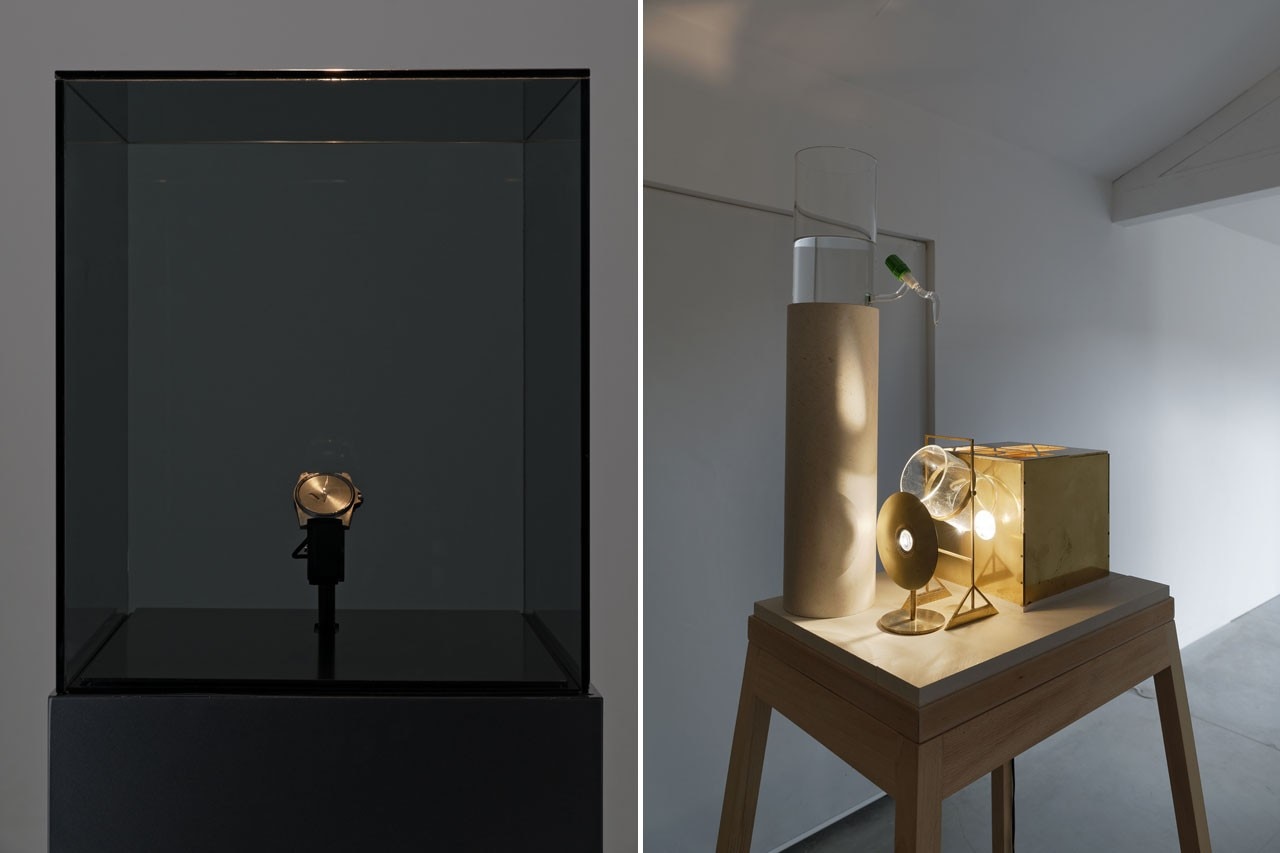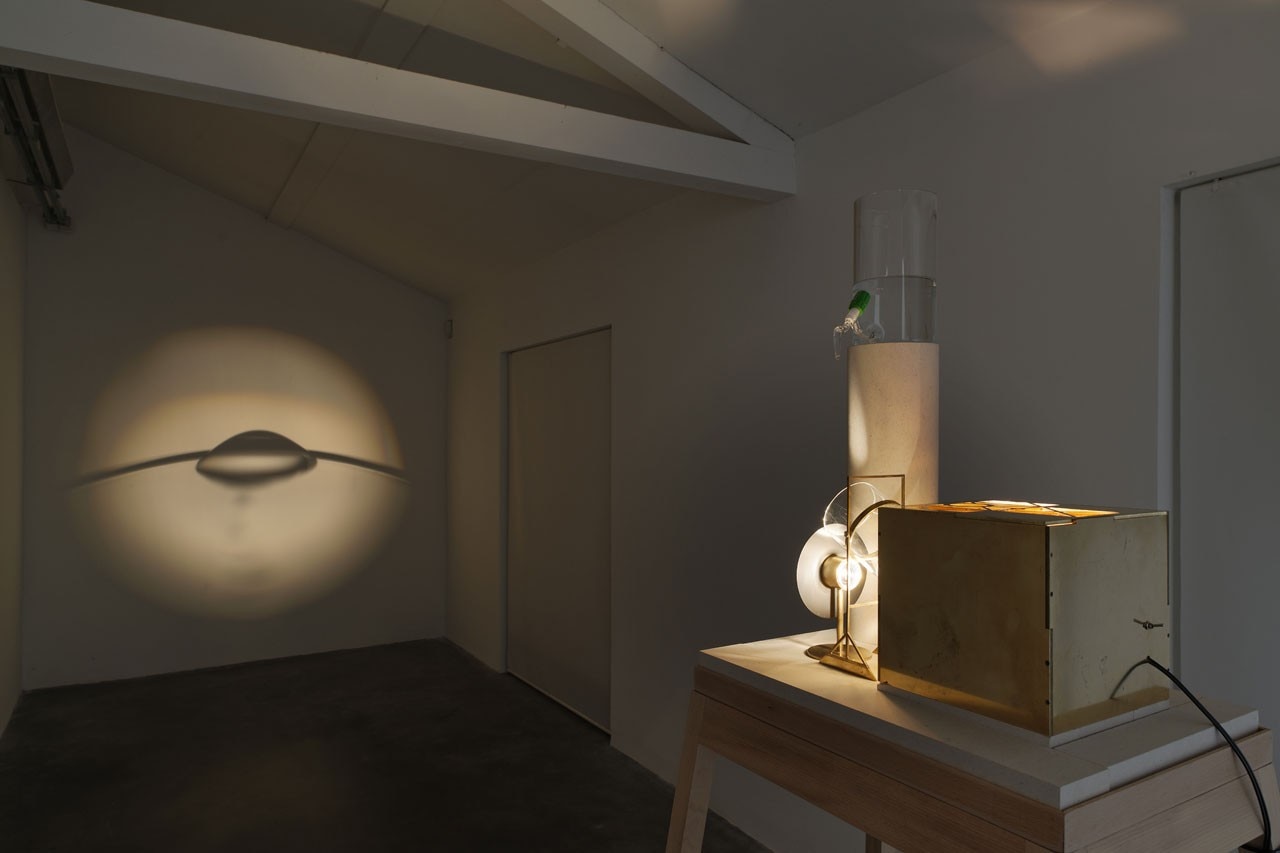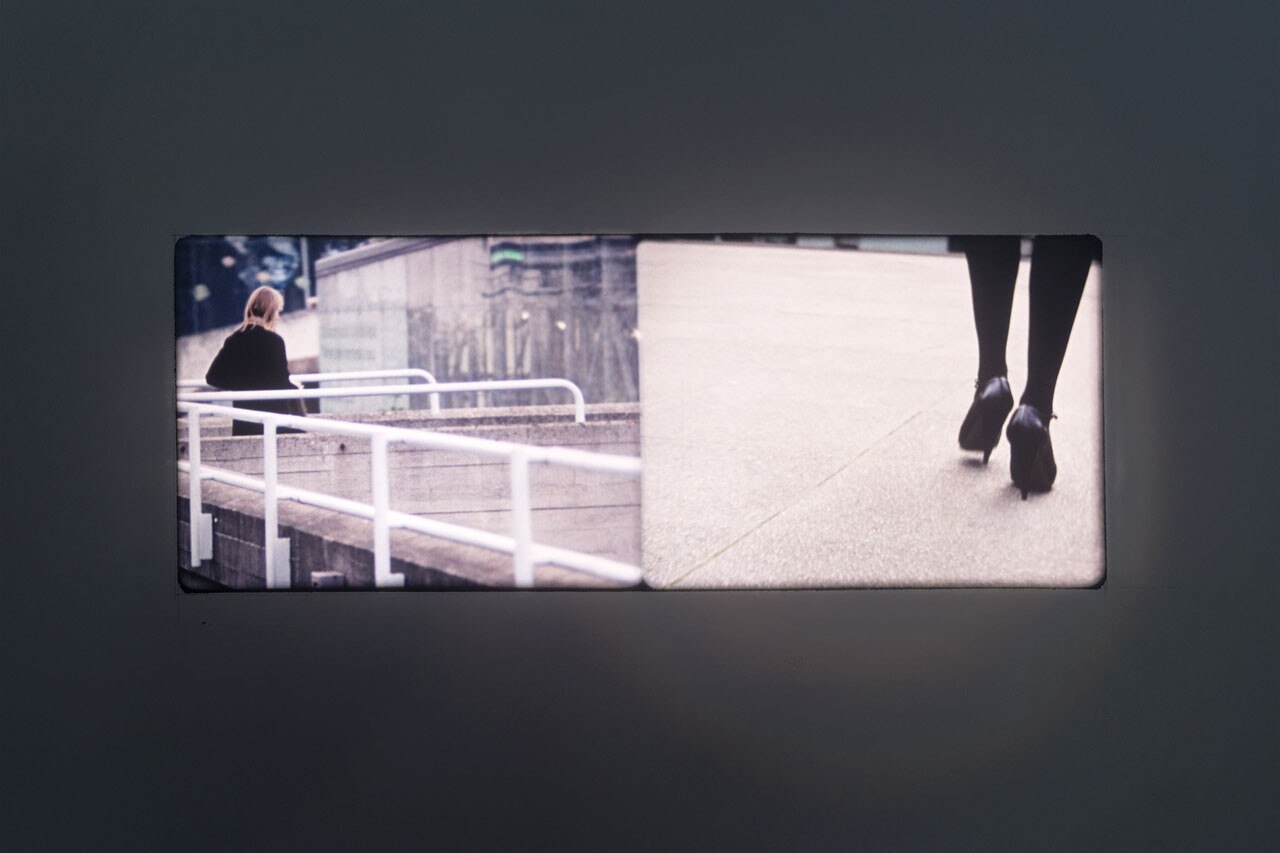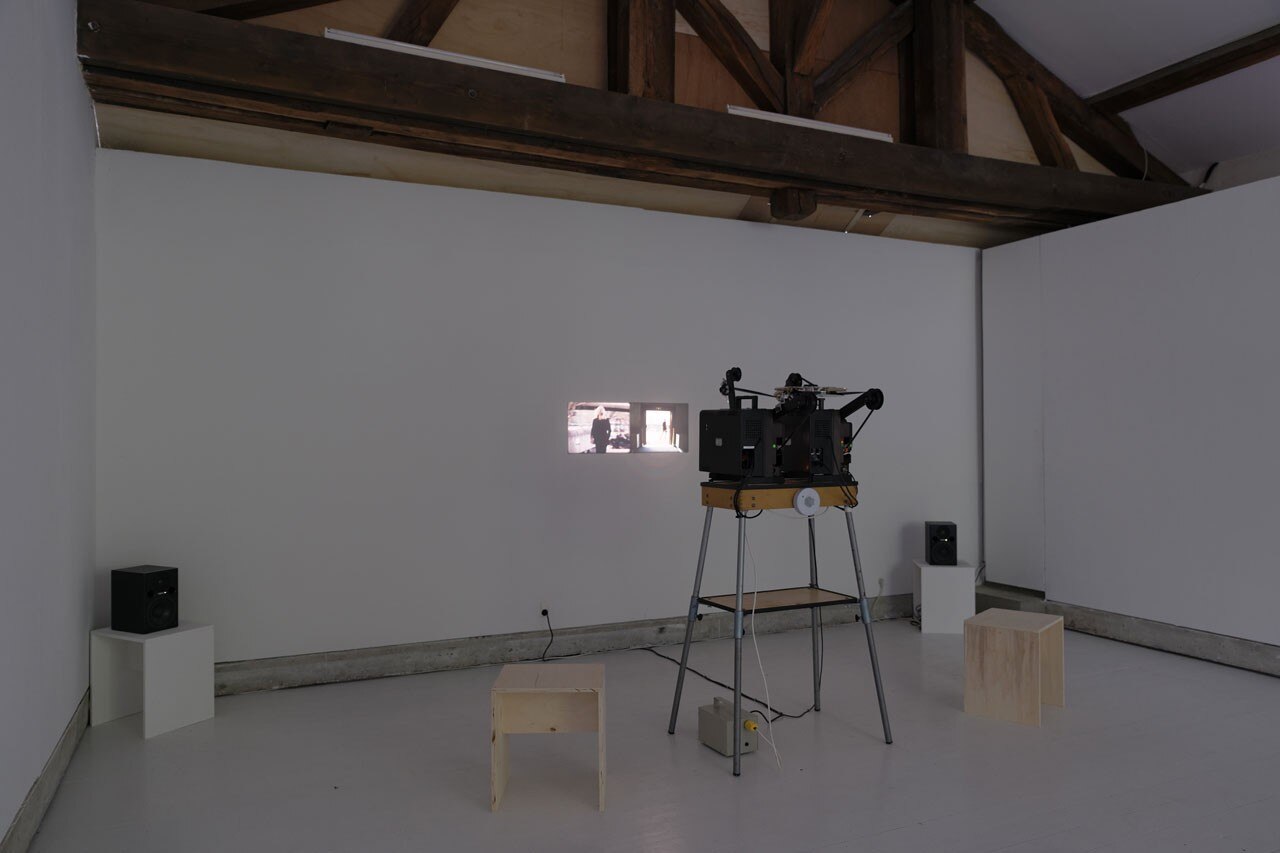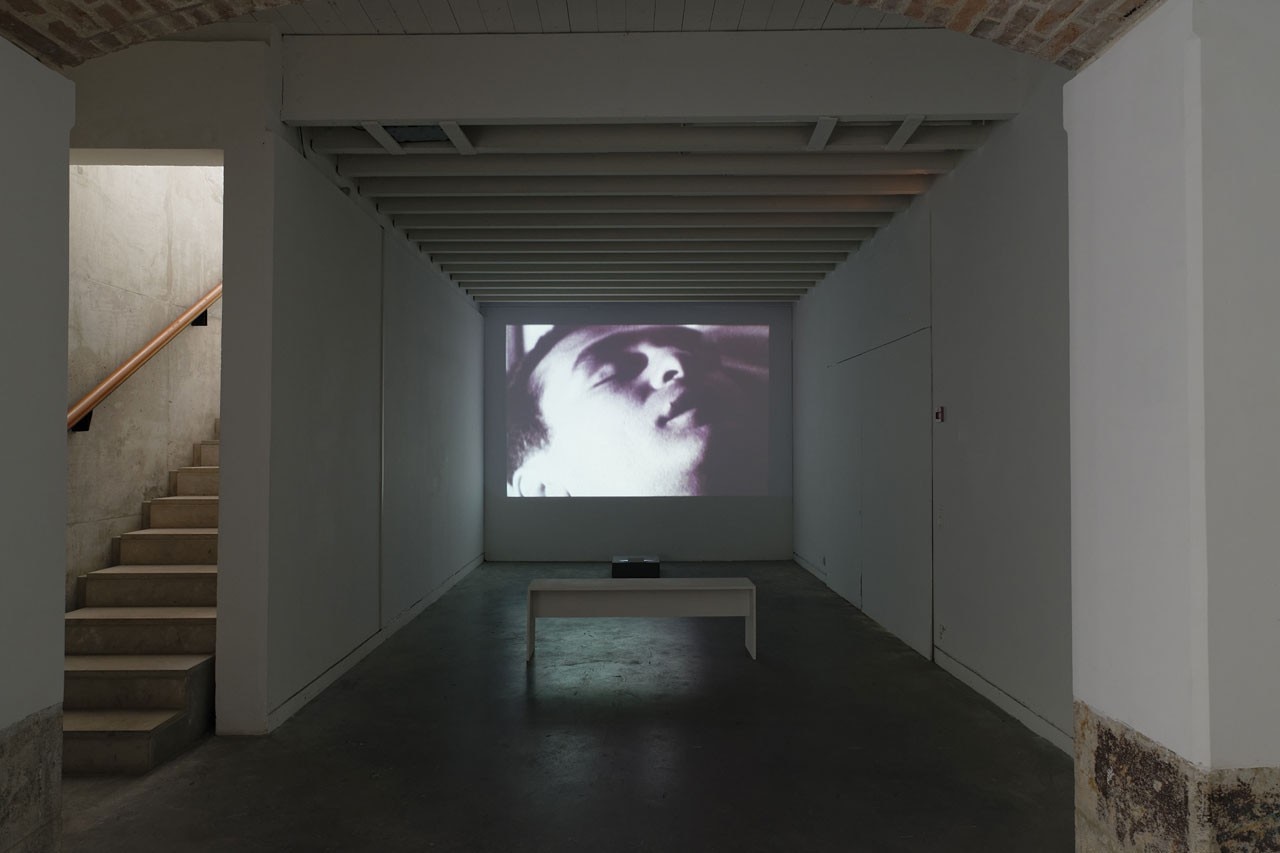
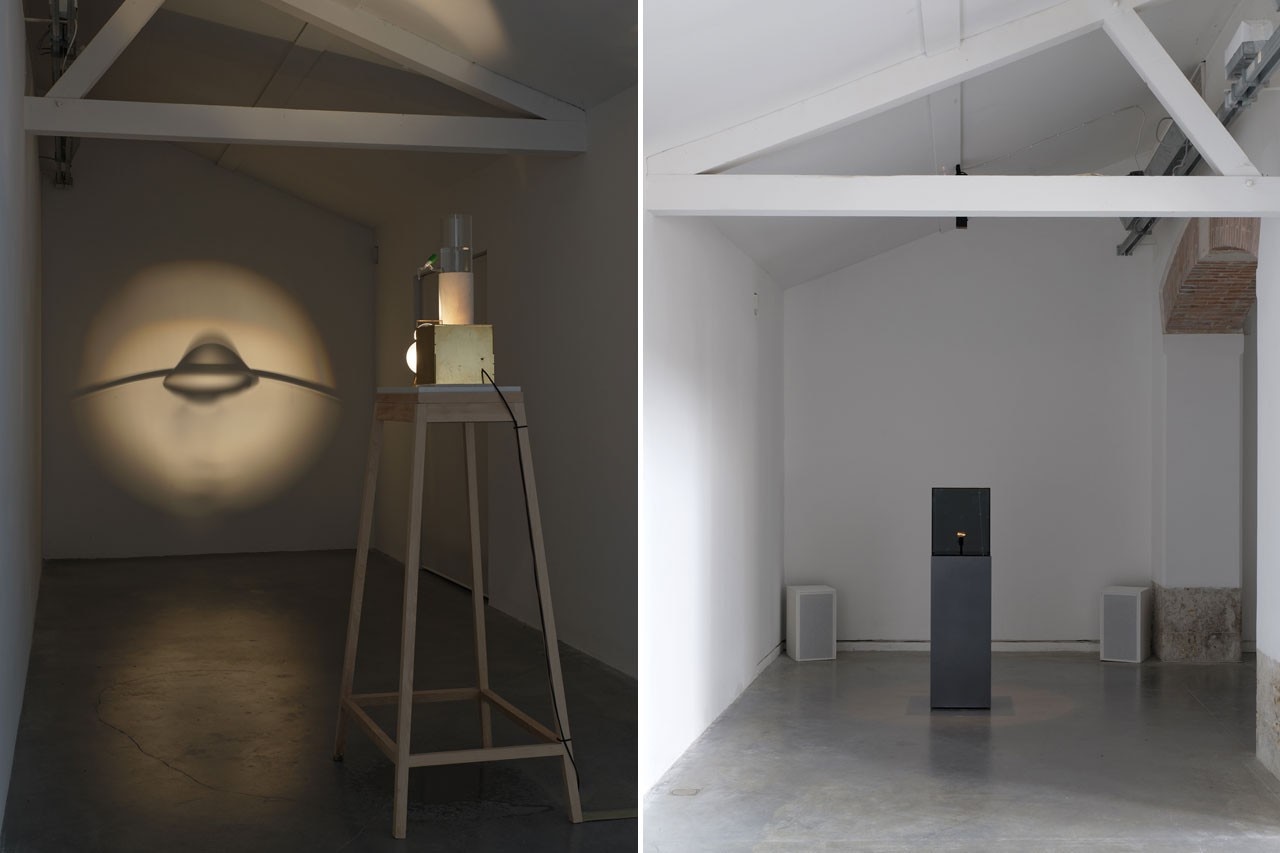
A single revolution of Canadian artist Patrick Bernatchez’s Black Watch (2011), specially commissioned to a Swiss watch maker, requires not the usual twenty four hours to go full circle, but a thousand years, and in doing so, dwarfs human cycles of time to virtually nothing.
Where this work uses the watch to extend time virtually beyond human comprehension, Portuguese, Lisbon-based artist Francisco Tropa’s Lantern (2012) goes back, so to speak, to the beginning of time. Part of his ongoing investigation of antique time-telling devices, Lantern, is a recreation of a clepsydra– an ancient device for measuring time by the regulated flow of water through a small aperture– which is then projected on the wall, like a magic lantern.
English, Berlin-based artist Juliette Blightman’s This World is not My Home (2010) telescopes time onto two periods of the afternoon, 3 pm, which could be considered the dead time of the day, as well as 5 pm, which is traditionally quitting time. The work is comprised of a chair on a rug with a fire grate placed in front of an open window. Everyday at 3 pm, a single log is placed on the grate and lit, and then every day at 5 o’clock the song, This World is not My Home by Jim Reeves plays.
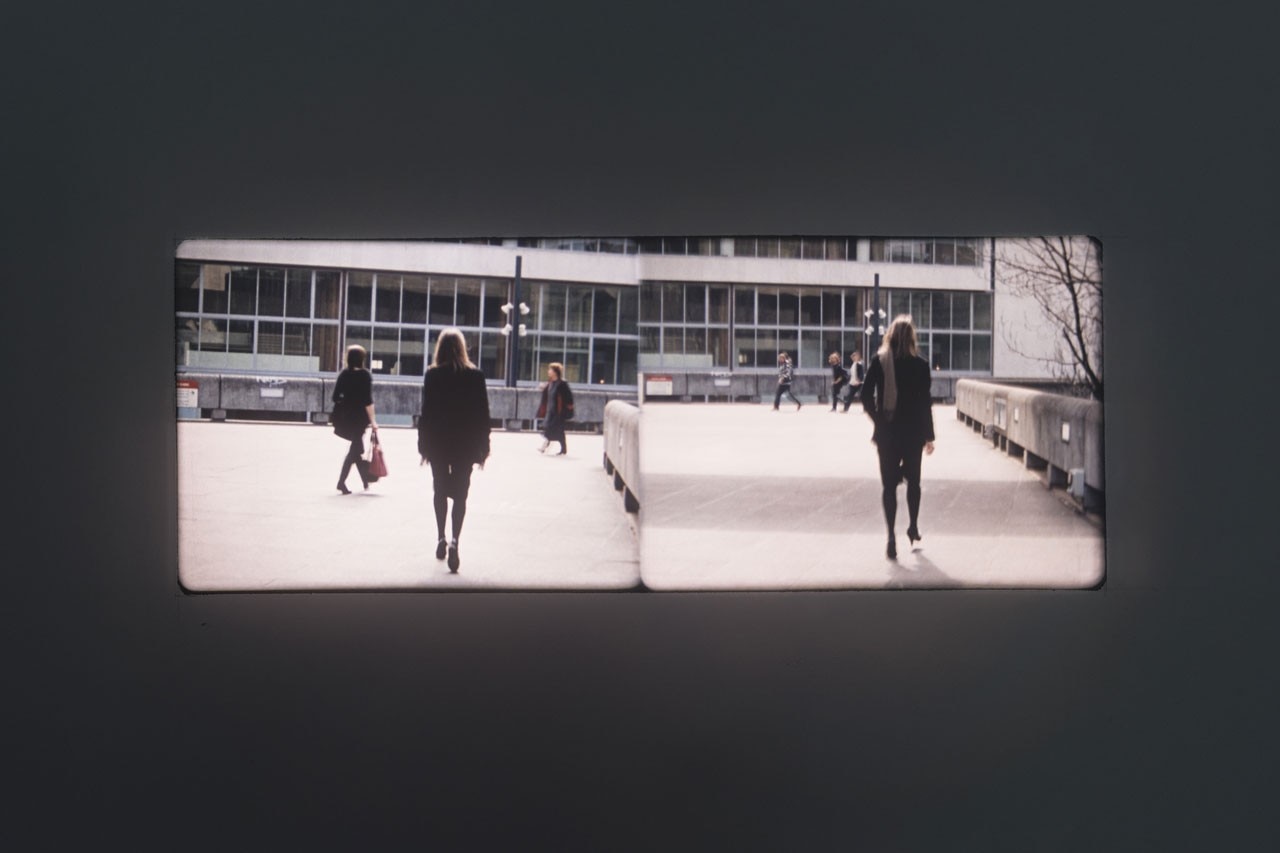
Rosalind Nashashibi’s The Prisoner (2008) could be said to compress the loop embedded in Blightman’s work. This 16mm two-projector film installation, which feeds the same film through both projectors at naturally non-synchronized screenings, depicts a woman climbing a set of stairs over and over again, as if trapped in the same infernal instant. Andy Warhol’s Sleep (1963), which consists of an image of John Giorno sleeping for five hours and twenty minutes is a classic literalization of cinematic time as time.
American, New York based Anicka Yi’s work Tenzingbaharakginaeditscottronnienikolalosangsandrafabiansa-
muelaninahannahelaine (2013) embodies, among other things, the sense of memento mori that inevitably courses through the entire exhibition. For this sculptural installation, Yi deep fried flowers in tempura batter and then placed them in a Donald Judd-like series of card board boxes full of resin. What is more, given the organic nature of this work, it is necessarily dialectical, in so far as, it is unstable and it will evolve over time.
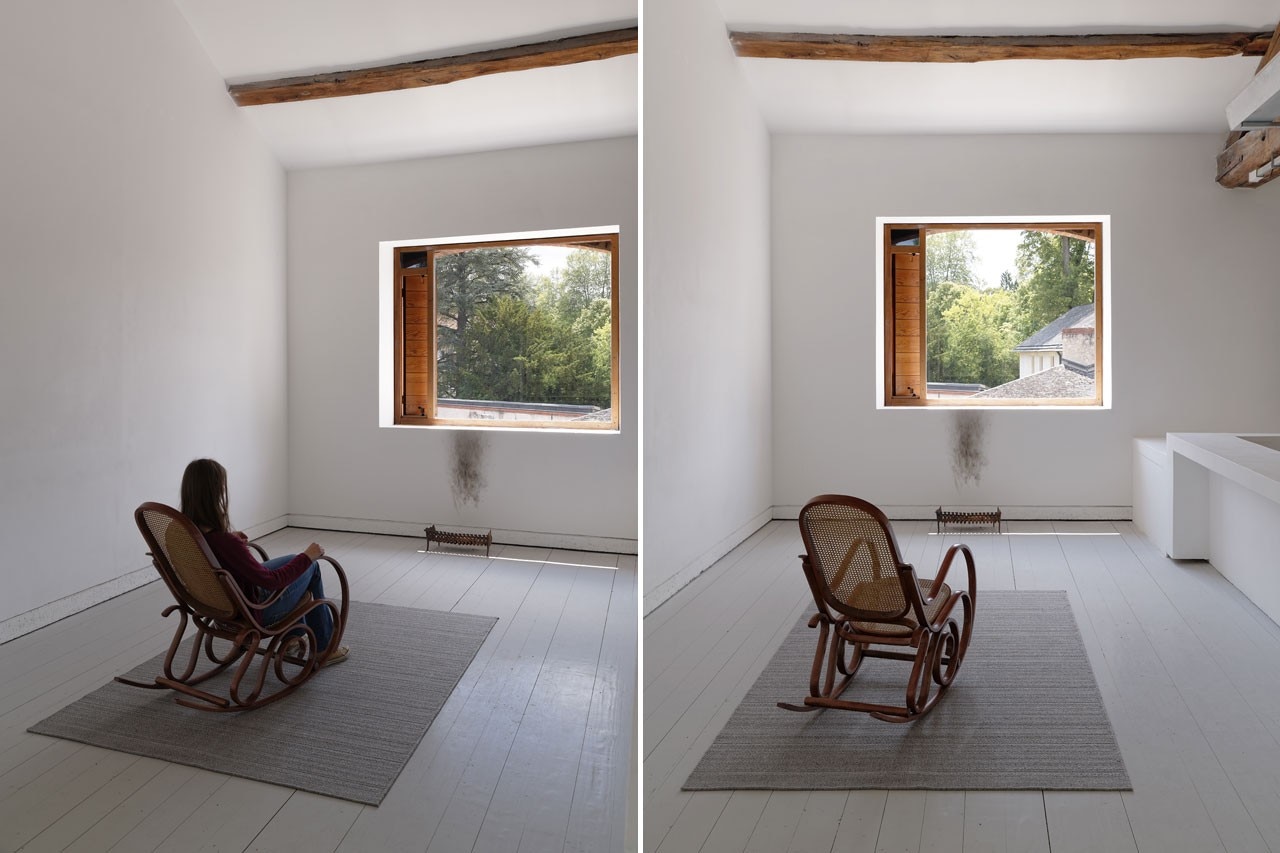
The Registry of Promise
curated by Chris Sharp
until Septembre 14, 2014
The Promise of Multiple Temporalities
Centre Parc Saint Léger
Avenue Conti, Pougues-les-Eaux


